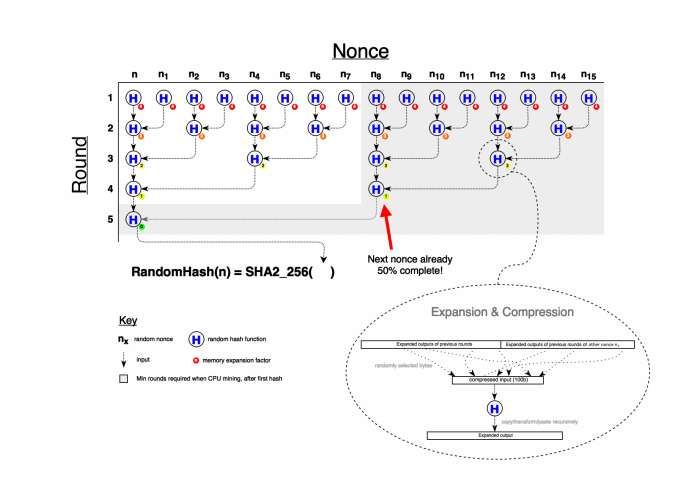Proof-of-Work Algorithms
Sphere 10 has designed, developed and delivered a low-memory, GPU and ASIC resistant proof-of-work hashing algorithms called RandomHash and RandomHash 2 .
RandomHash was designed to prevent mining centralization arising from GPU and ASIC heavy miners. By allowing ordinary consumer-grade CPU’s to compete at the same level as GPU’s and ASICs, the block production becomes democratized thus increasing the overall security of the network. Through RandomHash mining, tens of millions of dollars of value has been created for users world-wide.
How It Works
RandomHash is a “high-level” hash algorithm that combines 77 well-known cryptographic hash algorithms in a random, non-deterministic manner. The algorithm is low-memory, highly serial, recursive, branch-heavy and involves extensive executive decision-making. As a result, it is intrinsically inefficient for GPU-based processing and, due to its complexity, not economically viable for an ASIC implementation.
The primary innovation of RandomHash2 (and RandomHash) is how it is used in the mining process. The algorithm is designed such that the evaluation of a nonce is dependent on the partial evaluation of random, neighboring nonces. By injecting this nonce-interdependency into the algorithm, RandomHash2 allows a serial miner (CPU) to mine significantly faster than a parallel hasher (GPU) since the optimal nonce-set can only be enumerated on-the-fly, not pre-ranged for parallel evaluation. As a result, parallel hashers (GPU) are required to perform the full workload for all rounds whereas serial hashers (CPU) can re-use the partially completed nonce calculations from previous rounds. In RandomHash2, this “CPU bias” optimization gives CPUs a 500% higher hashrate.
Currently, the PascalCoin cryptocurrency is secured by RandomHash and RandomHash2.

